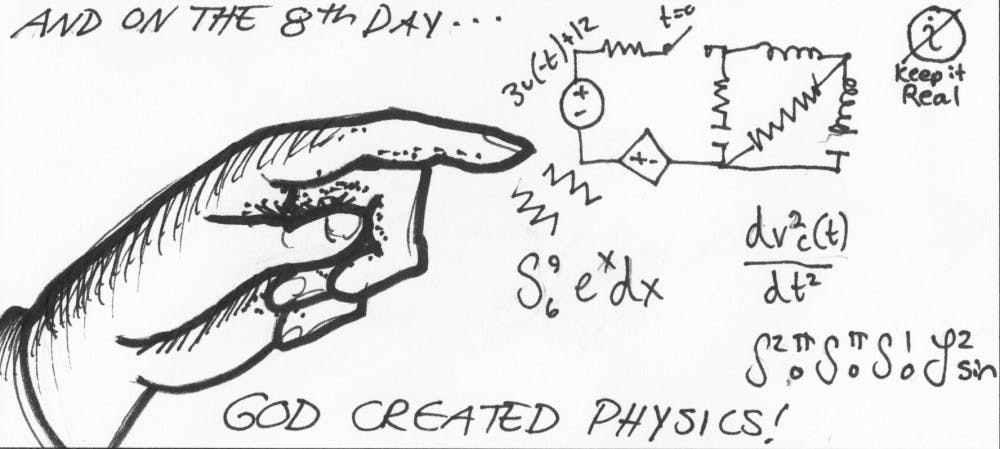Visiting professor to give lecture on symbiotic relationship between faith and fact
By Corey Fawcett, Staff Writer
Although the tension between religion and science seems ancient, many scientists and non scientists alike still believe that scientific thought and a belief in God and do not mix.
John F. Lindner, a physics professor on sabbatical from Wooster College in Wooster, Ohio will address this tension in his upcoming lecture called "Science, Theism, and the Nature of Reality" at 4:30 p.m. on Wednesday, April 21 in Buckley Center 163.
"I have always been interested in the nature of reality," said Lindner, who is doing research at the University of Portland during his yearlong sabbatical.
"I've always taken religion and science very seriously," he said. "Science is getting half of reality. There's a flipside. A moral law."
The purpose of Lindner's lecture is to explore this flipside of reality through science. He believes that science can be more reflective of theism – the belief in the existence of a god or gods – than atheistic naturalism, a school of thought more commonly associated with science that says there is one single natural world that can be shown to us only through scientific knowledge.
"Atoms are governed by probabilistic laws, so they are not always the same," Lindner said. "God created a universe with enough openness to allow free will and human and divine agency to exist."
Religion, according to Lindner, answers the questions that science cannot, and, therefore, is a necessary counterpart to science.
"I always like to ask ‘why' questions, but at the end of these questions in physics is always the big bang theory or quantum mechanics," he said. "Theism provides answers to the why questions. It can justify assumptions, and science cannot."
Lindner will also discuss the metaphysical necessity of physical laws.
"It's important to have a regular background of physical phenomenon because it would be hard to develop a sense of right and wrong if physics were always changing. These unchanging laws encourage the development of a moral background."
Lindner says that since human beings are created in God's image, they have been given the insight necessary to "figure things out to some extent" – like physical laws and even moral laws.
"I personally was inspired to pursue a degree in physics because it felt like a quest to know the mind of God," said physics professor Barbara Breen, who is doing research with Lindner. "I paraphrase Stephen Hawking, who said ‘If we do discover a theory of everything, it would be the ultimate triumph of human reason –for then we would truly know the mind of God.'"
The main goal of Lindner's lecture is to debunk the common belief that science and atheism are more compatible than science and theism. Some professors like UP physics professor Mark Utlaut, however, do not share Lindner's belief that religion and science can go hand in hand.
"They deal with two totally different kinds of knowledge," Utlaut said. "One is revealed; the other isn't. Science is universal on Earth, religion isn't. For example, physics is the same all over the world, and its language is mathematics. One can calculate and predict by reason. The two views are fairly incompatible. There's not even proof that theism is provable or not."
Although Utlaut sees no proof of theism in science, he acknowledges that science does tell us something important about human nature.
"It proves that humans have a virtually infinite capacity for rationalization," he said.
While Utlaut does not share Linder's perspective, he thinks students can benefit from hearing his presentation.
"I'm pretty sure it will make you think," Utlaut said.








